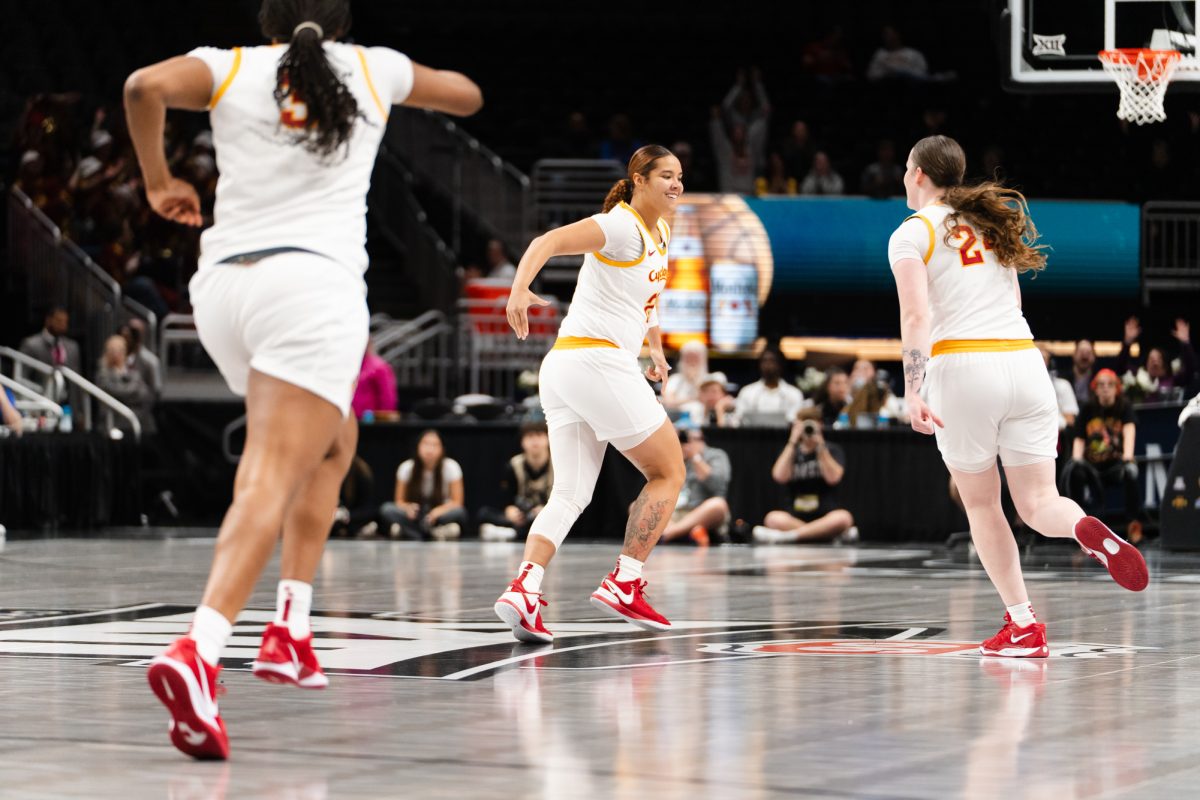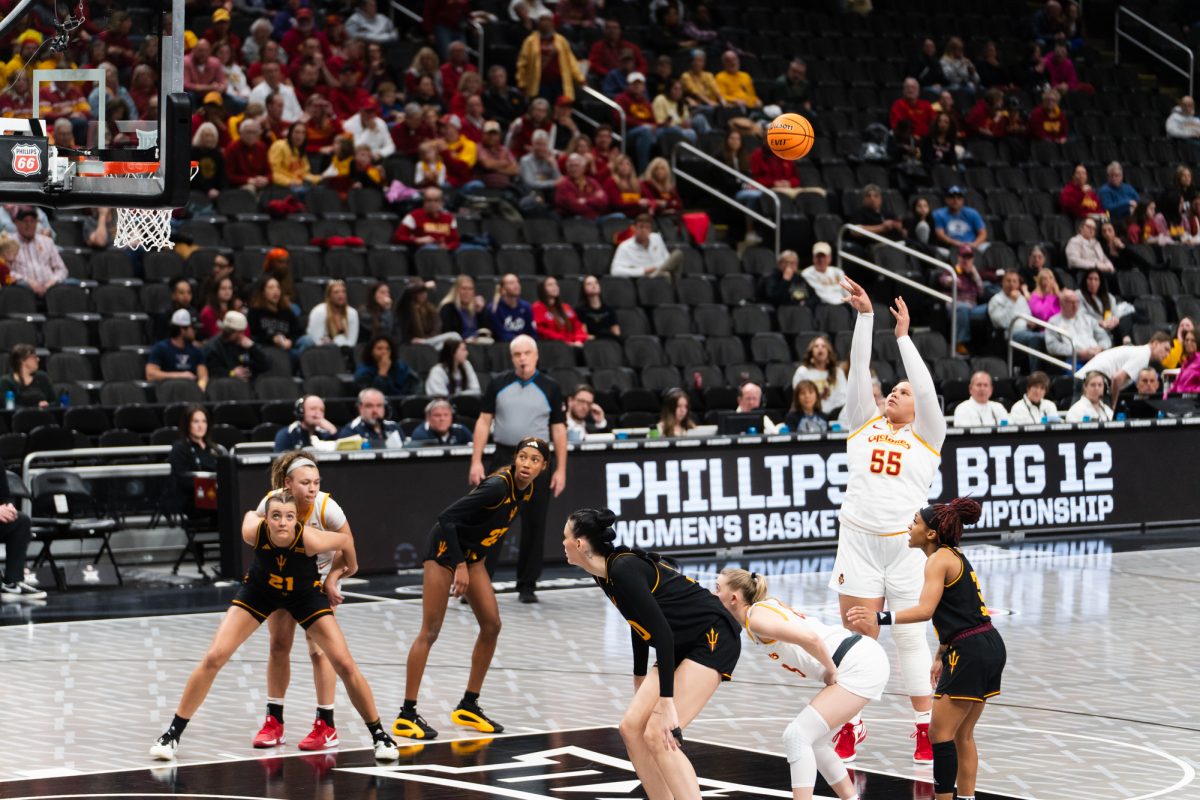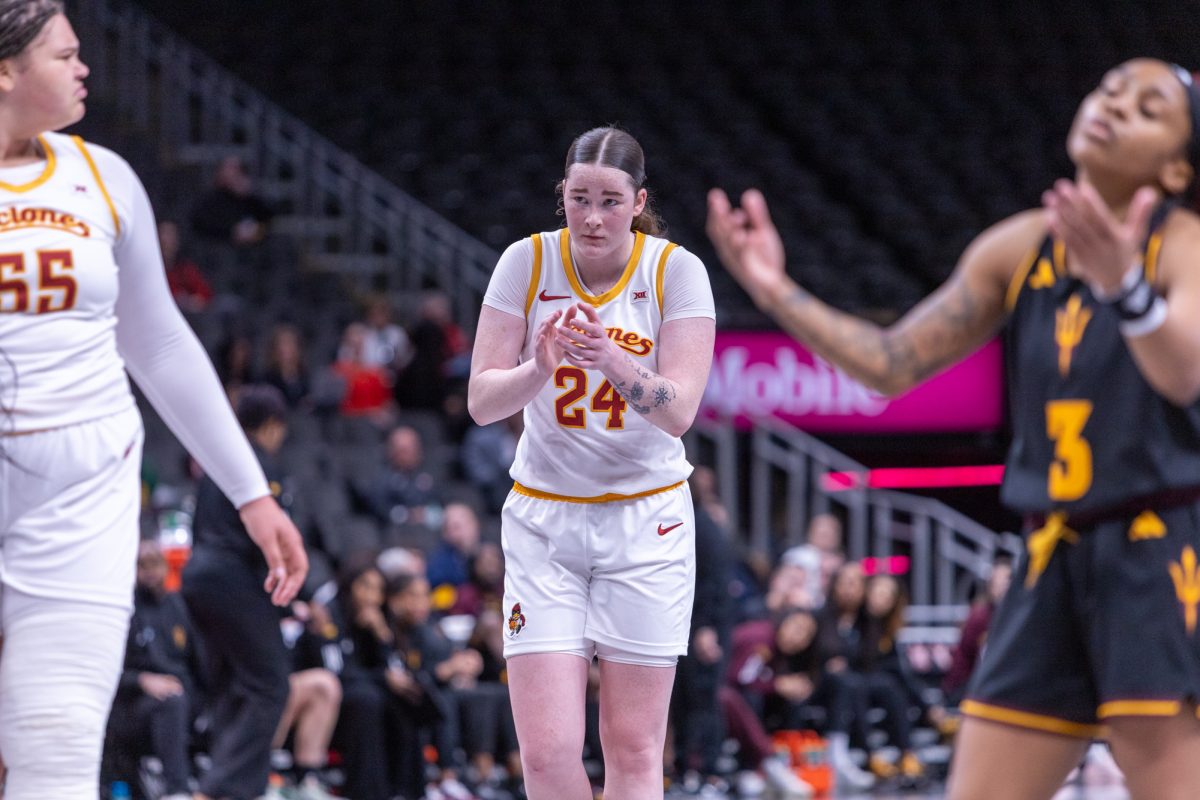Students help smokers quit
January 23, 1997
The ISU Student Health Center and the American Lung Association (ALA) are extending a helping hand to students wishing to break their nicotine habits this semester.
An eight-week “stop smoking” program will be available to students for the first time, in addition to the on-going, individual habit counseling offered at the Wellness Center, health education coordinator Randy Mayer said.
The program will consists of regular, small group meetings with student facilitators who will be trained to lead their groups in the ALA step-by-step method.
The program’s design encourages discussion and support among students who are quitting, as well as positive thinking and alternate behaviors, Mayer said.
Mayer said the ideal candidate for the program would be a student who has already made several failed attempts to quit smoking or chewing tobacco, or who has been mulling over the decision to quit for quite a while.
“If you’ve never tried to quit, your success won’t be that good. We want you to want to quit,” Mayer said. “There are times when it’s not the right time to quit, like if you’re dealing with other things in your life, other stresses.”
The program can accommodate most types of quitting methods, including cold turkey, gradual weaning, the patch, gum and nasal spray.
Small groups will begin meeting for one- to two-hour sessions the week of Feb. 17-21 to allow students to gather information and start the mental processes required to quit. The actual “quit date” for the entire group will not be until after spring break, Mayer said.
Kim Parrish, a freshman in health studies, is one of 14 student facilitators who will attend an all-day training session this Saturday. Though she has never smoked, Parrish said she has observed family members try to quit, often unsuccessfully.
“I would just like to see all the steps smokers have to go through to quit,” Parrish said. “I thought it would be a good experience for me, since I’m going into the field.” Parrish said she hopes to work as a health educator after graduation.
Mayer said the student facilitators were chosen largely on the basis of their willingness to invest time and lead a group. “They will be working with me to recruit smokers and nicotine users,” he said.
Of those selected, Mayer said about one-third of them are ex-smokers.
“Everybody’s been through a behavior change. [Being a past smoker] can help, but it can also be a hindrance,” he said. He also said that sometimes those who have succeeded in breaking their smoking or chewing habits expect that others be able to quit just as easily.
However, Sally Hill, a psychology intern at the Student Counseling Center and an ex-smoker, said she thinks her experience will help her in her job as a facilitator for the program.
“About 15 years ago, I quit myself,” Hill said. “I also have friends who have died from lung cancer, so it has some personal importance to me.”
The Student Health Center is charging students $10 to enroll in the program, to cover the costs of printed materials from ALA that will be given to students.
An additional $10 deposit is required, refundable to students who attend all eight of the sessions. The purpose of the deposit, Mayer said, is to encourage attendance.
He said the campaign’s goal is to rid at least 50 students of their nicotine habits this semester.
The program will also address stress management techniques, weight loss and assertiveness training.
Students interested in the program may call Mayer at 294-2722 for more information, or to sign up for a group. A variety of group meeting times and locations is available.






